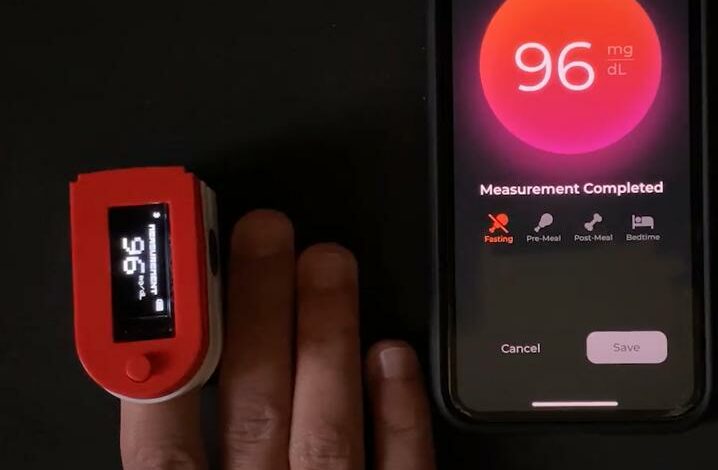
Five students from the Department of Electronics and Communications Engineering at the American University in Cairo won first place globally in the Johns Hopkins University Healthcare Design Competition 2022 in the digital health track for their device, GlucoClip, a glucose blood monitoring device for diabetics.
The team, made up of Maha Shata, Fatima Luqma, Mostafa Nossier, Ahmed al-Ghoul and Seif Ahmed (university graduate in 2021), is the only Egyptian team amongst the finalists.
“We are proud to represent the American University in Cairo and Egypt in this international competition,” says Nossier, adding that the GlucoClip device will have a wide impact on the lives of 537 million diabetics around the world.

The competition attracted undergraduates and alumni from around the world, and saw 120 projects submitted by 74 universities and 18 countries.
GlucoClip succeeded in obtaining first place after being nominated among seven other candidates for the digital design track.
The students began designing and developing the GlucoClip as part of their graduation project under the supervision of Professor of Electronics and Communications Engineering at the university, Hassanein Amer.
Safer, easier alternative for diabetics
The device monitors blood glucose level with a high level of accuracy, safety and non-invasiveness using near-infrared spectroscopy.
It aims to help diabetics, and is used as an alternative to finger pricks and other invasive tests. The device is also connected to a mobile application, allowing more ease and convenience in monitoring the patient’s blood glucose level.
Luqma explains that traditional methods of testing for diabetes may create a psychological barrier for many patients and prevent them from being regularly measured, where as GlucoClip works as a convenient, safer and easier alternative than traditional methods.
A year of work
The project took a year, with the team having designed a prototype and testing it on more than 100 people despite the difficulties they faced in obtaining medical approval to conduct large-scale tests due to the coronavirus pandemic.
The team was able to complete the project successfully, and GlucoClip showed a relatively high accuracy despite the small size of the sample.
“Presenting this project that we have worked so hard on to an international committee at such a prestigious university known for its extensive research programs is a very rewarding feeling,” Ghoul says.
The students stated that winning such an award from a prestigious university is a glimmer of hope to encourage them to further develop their device.
Luqma added that winning the award encouraged her to continue developing the idea of the device to reach the global market.




